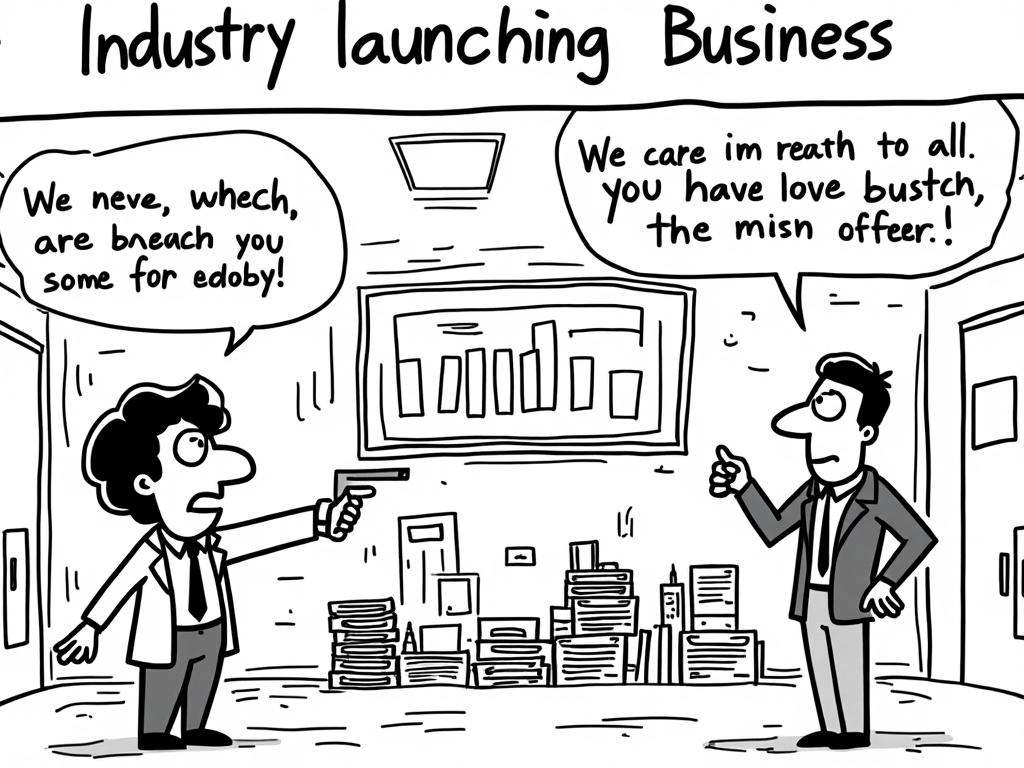
Top Industries to Launch in the IFZA Free Zone: Your Gateway to UAE Business Success
Reading time: 8 minutes
Ever wondered why global entrepreneurs are flocking to the International Financial Zone Authority (IFZA) in the UAE? You’re about to discover the strategic advantages that make this free zone a launchpad for ambitious business ventures across multiple industries.
The IFZA free zone isn’t just another business hub—it’s a carefully designed ecosystem that transforms regulatory complexity into competitive advantage. With over 40 business activities permitted and a track record of supporting 15,000+ companies, understanding which industries thrive here could be your ticket to Middle Eastern market dominance.
Table of Contents
- Understanding IFZA’s Strategic Position
- Top Industries for IFZA Launch
- Industry Performance Comparison
- Success Strategies by Sector
- Common Challenges and Solutions
- Your Industry Selection Roadmap
- Frequently Asked Questions
Understanding IFZA’s Strategic Position
Picture this: You’re launching a fintech startup and need access to both European and Asian markets. Traditional setups might require multiple licenses, complex compliance frameworks, and months of paperwork. IFZA changes this narrative entirely.
Located strategically between major global markets, IFZA offers a unique value proposition that goes beyond typical free zone benefits. The zone provides 100% foreign ownership, zero corporate tax for 50 years, and most importantly, industry-specific advantages that can accelerate your business trajectory.
Key Strategic Advantages
Geographic Positioning: IFZA’s location provides access to markets representing over 2.5 billion consumers within a 4-hour flight radius. This positioning is particularly crucial for industries requiring rapid market expansion or supply chain optimization.
Regulatory Framework: The zone operates under a specialized legal framework that supports innovation while maintaining international compliance standards. This balance is essential for industries like financial services and technology.
Infrastructure Excellence: With Grade A office spaces, advanced IT infrastructure, and comprehensive business support services, IFZA creates an environment where businesses can focus on growth rather than operational challenges.
Top Industries for IFZA Launch
Well, here’s the straight talk: Not all industries are created equal in the IFZA ecosystem. Let’s explore the sectors that consistently deliver exceptional results for entrepreneurs.
Financial Services and Fintech
The financial services sector represents IFZA’s crown jewel, with over 35% of companies operating in this space. The zone’s regulatory framework specifically supports innovative financial products while maintaining compliance with international standards.
Why it works: IFZA’s relationship with global financial regulators creates a pathway for companies to access international markets without the typical barriers. A prime example is Dubai-based payment processor TechPay, which scaled from startup to processing $50 million in transactions within 18 months of establishing in IFZA.
Key opportunities include:
- Digital payment solutions
- Cryptocurrency exchanges and blockchain technology
- Investment advisory services
- Insurance technology (InsurTech)
- Peer-to-peer lending platforms
Technology and Software Development
Technology companies find IFZA’s intellectual property protection and talent access particularly attractive. The zone’s proximity to major tech hubs in Asia and Europe creates unique opportunities for software development and technology services.
Success story spotlight: CloudTech Solutions leveraged IFZA’s strategic location to serve clients across three continents simultaneously, achieving 300% revenue growth in their second year of operations.
Thriving tech sectors include:
- Software as a Service (SaaS) platforms
- Artificial intelligence and machine learning
- Mobile application development
- Cybersecurity solutions
- E-commerce platforms and digital marketplaces
Trading and Logistics
The UAE’s position as a global trading hub makes IFZA an ideal location for trading companies. The zone’s logistics infrastructure and customs advantages create significant competitive benefits for businesses in this sector.
Competitive advantages:
- Streamlined customs procedures
- Access to world-class ports and airports
- Minimal documentation requirements
- Tax-efficient trading structures
Professional Services and Consulting
Management consulting, legal services, and professional advisory firms benefit from IFZA’s business-friendly environment and access to a diverse client base across multiple industries.
The zone’s reputation for excellence attracts high-value clients, while the operational flexibility allows service providers to scale rapidly across different markets.
Industry Performance Comparison
Understanding how different industries perform in IFZA can guide your strategic decision-making. Here’s a comprehensive comparison of key performance metrics:
| Industry | Average Setup Time | Initial Investment Range | Growth Potential | Market Access |
|---|---|---|---|---|
| Financial Services | 3-4 weeks | $25,000 – $100,000 | Very High | Global |
| Technology | 2-3 weeks | $15,000 – $50,000 | High | Global |
| Trading & Logistics | 2-3 weeks | $20,000 – $75,000 | High | Regional + Global |
| Professional Services | 2-3 weeks | $12,000 – $40,000 | Medium-High | Regional |
| E-commerce | 2-3 weeks | $10,000 – $35,000 | Medium-High | Regional + Global |
Industry Success Rate Visualization
Based on IFZA’s internal data, here’s how different industries perform in terms of business sustainability after 3 years:
88%
82%
78%
75%
71%
Success Strategies by Sector
Quick Scenario: Imagine you’re launching a fintech startup. What specific strategies would maximize your chances of success in IFZA? Let’s dive deep and turn potential challenges into strategic opportunities.
Financial Services Strategy
Regulatory Preparation: Start with comprehensive regulatory mapping. Engage with IFZA’s regulatory team early to understand compliance requirements and potential licensing pathways.
Partnership Development: Establish relationships with local banks and financial institutions before launch. This foundation is crucial for operational banking and client servicing.
Technology Infrastructure: Invest in robust cybersecurity and data protection systems from day one. Financial services companies face heightened scrutiny, and strong security protocols are non-negotiable.
Technology Sector Strategy
Talent Acquisition: Leverage IFZA’s proximity to major universities and tech talent pools. Consider hybrid teams combining local expertise with international specialists.
IP Protection: Implement comprehensive intellectual property protection strategies, including trademark registration and patent filing where applicable.
Market Positioning: Position your technology solutions to serve both local and international markets simultaneously, maximizing the zone’s geographic advantages.
Common Challenges and Solutions
Ready to transform complexity into competitive advantage? Let’s address the most common obstacles entrepreneurs face when launching in IFZA and provide practical solutions.
Challenge 1: Regulatory Navigation
The Problem: Understanding the intersection of IFZA regulations, UAE federal law, and international compliance requirements can be overwhelming.
The Solution: Develop a three-tier compliance strategy:
- IFZA Level: Work closely with IFZA’s business setup team to understand zone-specific requirements
- UAE Federal Level: Engage local legal counsel familiar with UAE commercial law
- International Level: Consult with specialists in your target markets for cross-border compliance
Pro Tip: The right preparation isn’t just about avoiding problems—it’s about creating scalable, resilient business foundations that can adapt to regulatory changes.
Challenge 2: Market Entry Strategy
The Problem: Many entrepreneurs underestimate the complexity of simultaneously entering multiple markets from an IFZA base.
The Solution: Implement a phased market entry approach:
- Phase 1: Establish operations and test products in the UAE market
- Phase 2: Expand to GCC countries leveraging regional trade agreements
- Phase 3: Scale to international markets using IFZA’s global connectivity
Challenge 3: Talent and Team Building
The Problem: Attracting the right talent mix for diverse, multicultural teams operating across different time zones.
The Solution: Create a talent strategy that balances local expertise with international experience. Consider implementing flexible work arrangements and competitive benefits packages that appeal to global talent.
Your Industry Selection Roadmap
Successful business entry isn’t about perfection—it’s about strategic navigation. Here’s your actionable roadmap for selecting and launching the right industry in IFZA:
Step 1: Industry Assessment and Market Research
- Analyze your existing expertise and how it aligns with IFZA’s top-performing industries
- Conduct comprehensive market research on your target sectors
- Evaluate competitive landscape and identify market gaps
- Assess regulatory requirements specific to your chosen industry
Step 2: Financial Planning and Resource Allocation
- Develop detailed financial projections for your first 3 years
- Secure adequate funding that accounts for setup costs and operational expenses
- Plan for contingencies and market volatility
- Consider currency hedging strategies for international operations
Step 3: Strategic Partnership Development
- Identify potential local partners and service providers
- Build relationships with industry associations and chambers of commerce
- Establish banking relationships early in the process
- Consider strategic alliances with complementary businesses
Step 4: Operational Excellence Framework
- Implement robust operational processes from day one
- Establish quality control and performance monitoring systems
- Create scalable business processes that can adapt to growth
- Develop crisis management and business continuity plans
Step 5: Growth and Expansion Strategy
- Define clear growth milestones and success metrics
- Plan for regional and international expansion
- Establish innovation and product development capabilities
- Build a sustainable competitive advantage
The future of business in the Middle East is being written by entrepreneurs who understand that success comes from strategic positioning, not just market presence. As global trade patterns shift and new technologies emerge, IFZA continues to evolve its offerings to support tomorrow’s leading industries.
Your journey toward establishing a successful business in IFZA begins with understanding that this isn’t just about setting up another company—it’s about positioning yourself at the center of global commerce. The question isn’t whether you should consider IFZA, but rather: Which industry will you choose to dominate from this strategic advantage point?
Frequently Asked Questions
What is the minimum capital requirement for starting a business in IFZA?
The minimum capital requirement varies by industry and business activity. For most service-based businesses, the minimum is typically AED 50,000 (approximately $13,600). However, certain financial services and trading activities may require higher capital amounts. It’s important to consult with IFZA representatives for specific requirements based on your chosen industry and business model.
How long does it take to establish a company in IFZA?
The typical setup time ranges from 2-4 weeks, depending on the complexity of your business structure and industry requirements. Financial services companies may take slightly longer due to additional regulatory approvals, while technology and professional services companies can often be established within 2-3 weeks. Having all required documentation prepared in advance can significantly accelerate the process.
Can I operate my IFZA company globally, or are there restrictions?
IFZA companies enjoy significant flexibility in operating globally. You can conduct business with clients and partners worldwide, maintain international bank accounts, and establish subsidiary operations in other jurisdictions. However, certain industries may have specific compliance requirements when operating in particular markets. It’s advisable to consult with legal experts familiar with your target markets to ensure full compliance with local regulations.

Article reviewed by Arjun Patel, Fintech Analyst | Researching Digital Payment Trends in UAE, on July 15, 2025




